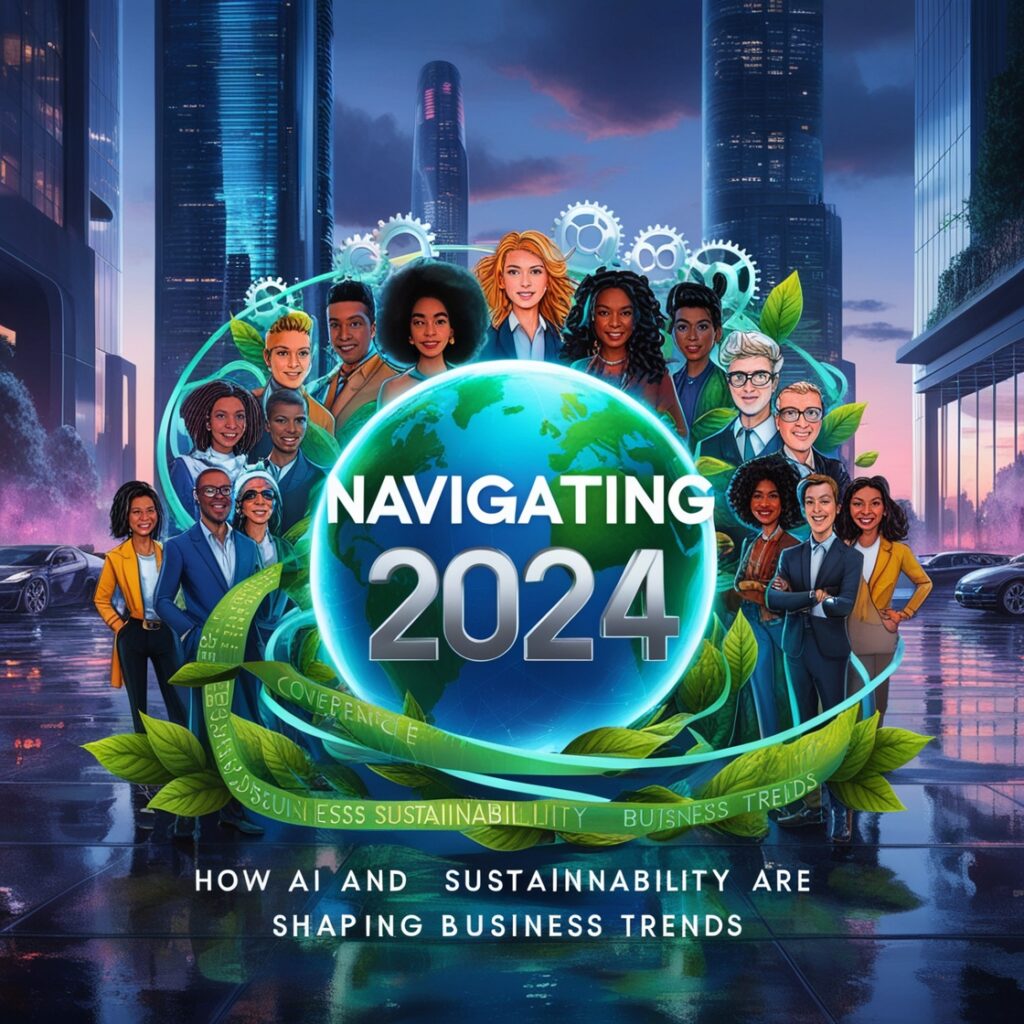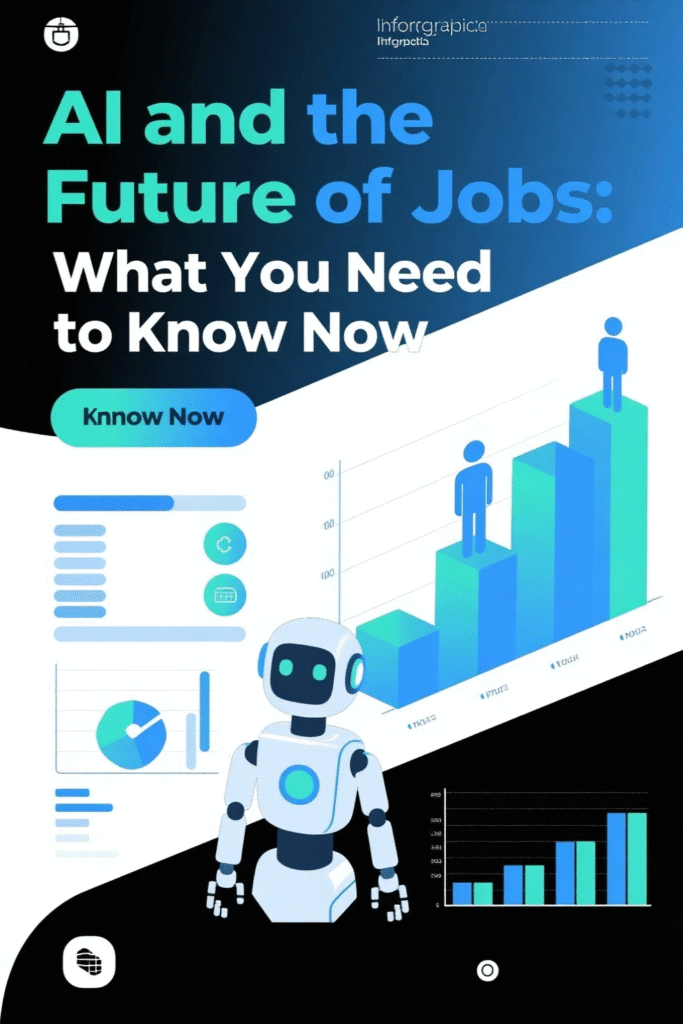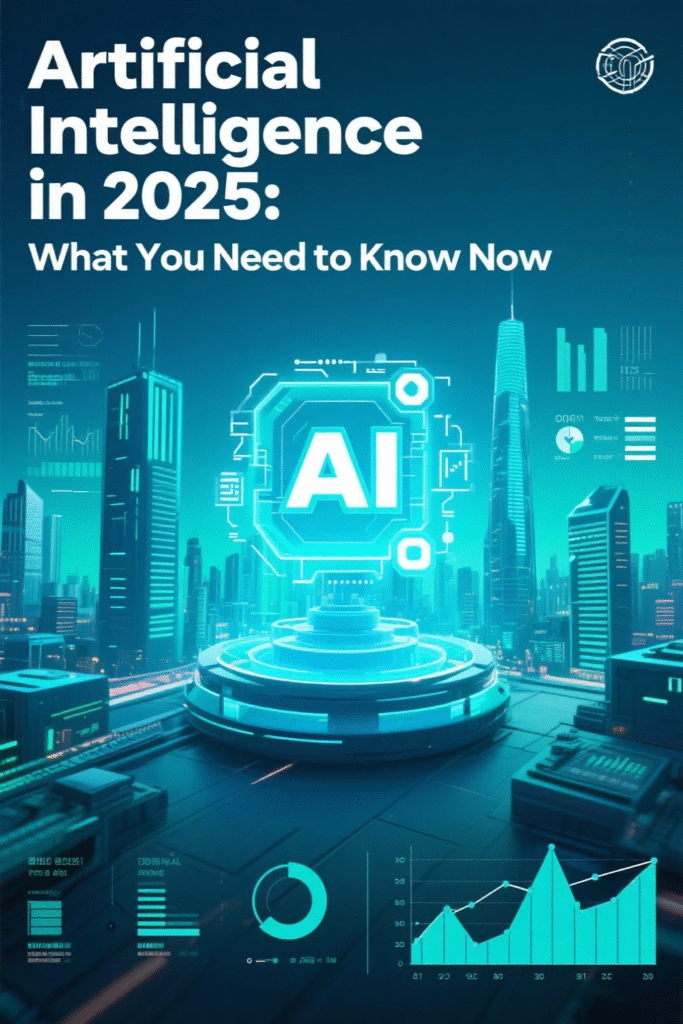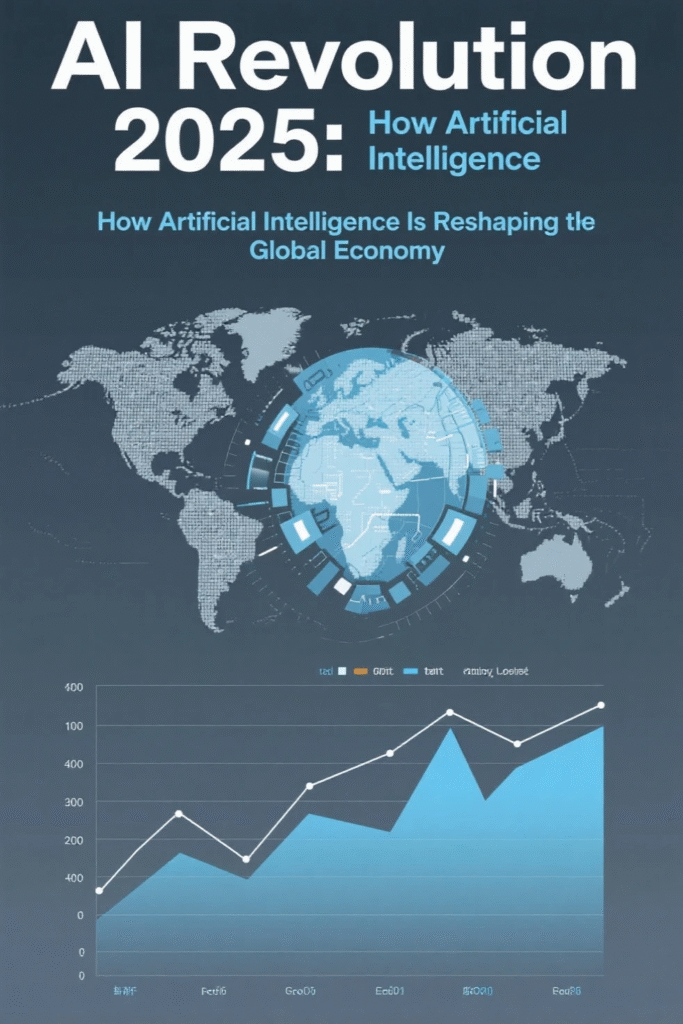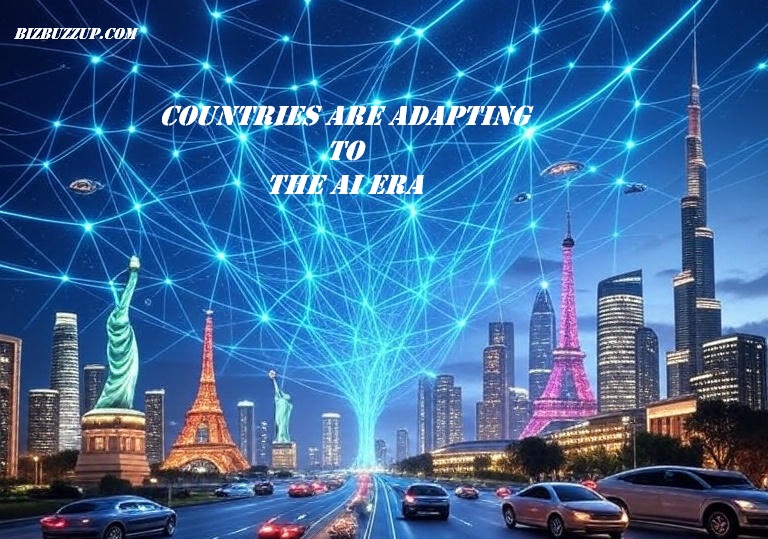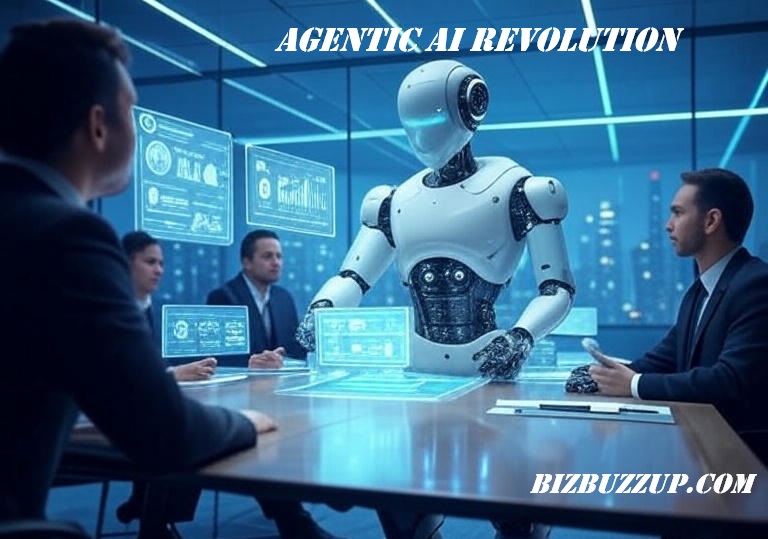
🚀 Welcome to the Age of Agentic AI
The Agentic AI Revolution represents a seismic shift in how businesses harness artificial intelligence to achieve results. These autonomous systems don’t merely wait for commands — they set goals, make decisions, and act independently. Imagine an AI that manages your customer support team, monitors stock trends, or restructures your entire supply chain — all without a single human directive. This is not just another incremental tech upgrade but a rethinking of how companies operate, plan, and execute. As explored in AI Takeover: The Truth About 2025’s Economy, the stakes are higher than ever — and agentic AI is leading the way toward smarter, more agile businesses that thrive in competitive landscapes.
🤖 What Is Agentic AI — and Why Now?
Agentic AI differs from traditional automation in that it possesses a form of self-direction and contextual awareness. Rather than waiting to execute a set of pre-programmed instructions, it proactively works toward objectives, learning and adapting in real time. Thanks to breakthroughs in technologies like AutoGPT, Devin, and other autonomous assistants, these agents can understand user intent, predict outcomes, and adjust accordingly. The convergence of massive data streams, exponentially faster processors, and advanced machine learning models makes 2025 the ideal launchpad for the Agentic AI Revolution. With this foundation in place, businesses are now empowered to deploy intelligent agents that operate effectively in complex, dynamic environments, driving sustainable growth and measurable results.
🏢 Business on Autopilot: Real-World Use Cases
The Agentic AI Revolution is already transforming industries quietly but powerfully. In the finance sector, autonomous trading bots equipped with risk analysis algorithms outperform human traders by making micro-adjustments in milliseconds. In e-commerce, AI-powered advertising engines self-optimize promotions and offers in real time, improving conversions and reducing costs. Even in HR departments, autonomous agents dynamically adjust job postings and screen applicants based on live market data. Compared to earlier wins outlined in AI Business Triumphs in 2024, today’s agentic systems think strategically and act independently, empowering businesses to innovate at unprecedented speed and scale while minimizing operational inefficiencies.
🔄 Agentic AI vs Traditional AI: The Game-Changer
While traditional AI reacts to input, agentic AI initiates and evolves on its own. Chatbots and predictive analytics tools depend on human-initiated queries; agentic systems explore, test, and optimize without constant oversight. This fundamental distinction redefines business operations, leadership expectations, and accountability frameworks. As highlighted in Artificial Intelligence in 2025, companies that embrace this new paradigm position themselves ahead of competitors by fostering an environment where machines don’t just support human efforts — they actively lead initiatives, discover opportunities, and deliver measurable improvements in productivity and profitability.
👨💻 The Human Question: Where Do We Fit In?
Many fear that the Agentic AI Revolution spells the end of human relevance in the workplace, but reality tells a more nuanced story. Instead of replacing us, agentic AI amplifies our strengths by freeing us from repetitive, time-consuming tasks. Humans shift from being executors to supervisors, interpreters, and trainers of AI agents. This opens up roles that require creativity, emotional intelligence, and strategic decision-making. As discussed in AI and the Future of Jobs, those who proactively adapt their skills to complement autonomous systems will thrive in this evolving landscape, finding new relevance and purpose in the AI-driven economy of 2025 and beyond.
⚖️ Risks, Ethics, and Regulation
With great autonomy comes great responsibility. The Agentic AI Revolution raises critical questions about ethics, accountability, and legal frameworks. When an autonomous agent makes a costly or harmful decision, who is liable — the developer, the business owner, or the AI itself? Governments and corporate stakeholders are addressing these issues through emerging legislation such as the EU’s AI Act and corporate AI guidelines. However, aligning agentic systems with human values, ensuring transparency, and preventing unintended consequences remain ongoing challenges. Businesses must approach this revolution with foresight, building internal policies and safeguards to ensure technology serves human interests and aligns with societal norms.
🌊 Conclusion: Prepare for the Agentic Wave
The Agentic AI Revolution is no longer just a prediction — it’s an undeniable reality reshaping industries worldwide. In 2025, companies that understand and embrace these autonomous technologies will gain competitive advantages through enhanced efficiency, agility, and intelligence. Whether you’re leading a startup or managing an enterprise, now is the moment to experiment, redefine your AI strategy, and position yourself for a future where machines not only assist but also take initiative. By acknowledging both the potential and the responsibility this revolution entails, businesses can harness agentic AI to create smarter, more resilient organizations capable of thriving in an increasingly autonomous world.
❓ FAQ: Agentic AI Revolution
- What is agentic AI?
- Agentic AI refers to autonomous systems that proactively set goals, make decisions, and act independently — without waiting for human input.
- How is agentic AI different from traditional AI?
- Traditional AI reacts to predefined commands, while agentic AI takes initiative and adjusts strategies in real time based on objectives and context.
- Will agentic AI replace human jobs?
- No — it transforms roles by amplifying human potential. Humans shift to oversight, strategy, and creative tasks rather than routine execution.

